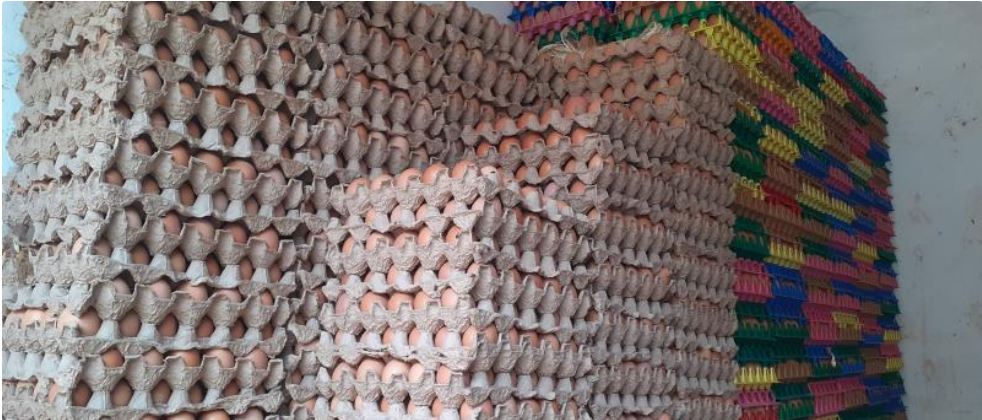Sellers of eggs in Kampala are stuck with hundreds of trays as the economy shut down due to coronavirus meaning key clients locally and abroad no longer buy.
This has seen the price of a tray of eggs fall by at least 2000 shillings to just Uganda shillings 8,000 for the retailer buyers. Those buying in bulk can get a tray at Shs 7,000.
At Ovino in Kisenyi, traders sat in their stalls with trays of eggs awaiting customers but the ban on private cars, low business for hotels and few buyers of rolex means not many are selling.
Sumaya Nakibuuka, a seller of eggs in Kisenyi said their main customers were Kenyans but now they fear to come to Uganda and Ugandans fear to go to Kenya. This means no one is buying.
Nakibuuka said that while she stocked up to 2,000 trays per week and were bought before the coronavirus crisis, she now only stocks.
For some traders, the crisis found them with stocks which they aren’t selling. They had bought eggs at 10,500 and were expecting to sell a tray at 12,000, but have been forced to sell eggs at Shs 7000 a tray,
Issa Kimbowa, a trader in Kisenyi said they were facing the worst scenario as traders dealing in eggs.
A lot of eggs go to Kenya, South Sudan but traders fear to move. Many dealers who would come from Kenya to Uganda to take the eggs no longer travel.
Other consumers locally like makers of confectionery and organizers of parties are not working.
For the damaged eggs, Sumaya says, they used to sell them to bakeries like Denevo but many of the bakeries have either closed or reduced their capacity.
As the traders struggle to find the market, farmers are calling on traders to go and pick the eggs. Nakibuuka said for the traders to pick the eggs from farmers, they have to wait for an order from a hotel or a big entity that is in need of eggs.
If they buy without a prior order, the eggs would stay for long and go bad.
Uganda’s production of eggs production has grown tremendously with total eggs produced in a year reaching 930 million in 2018, according to the Uganda Bureau of Statistics (UBOS).
If the COVID-19 shutdown goes on for long, much of these eggs will go to waste, plunging farmers and traders alike into losses.
source: URN.




